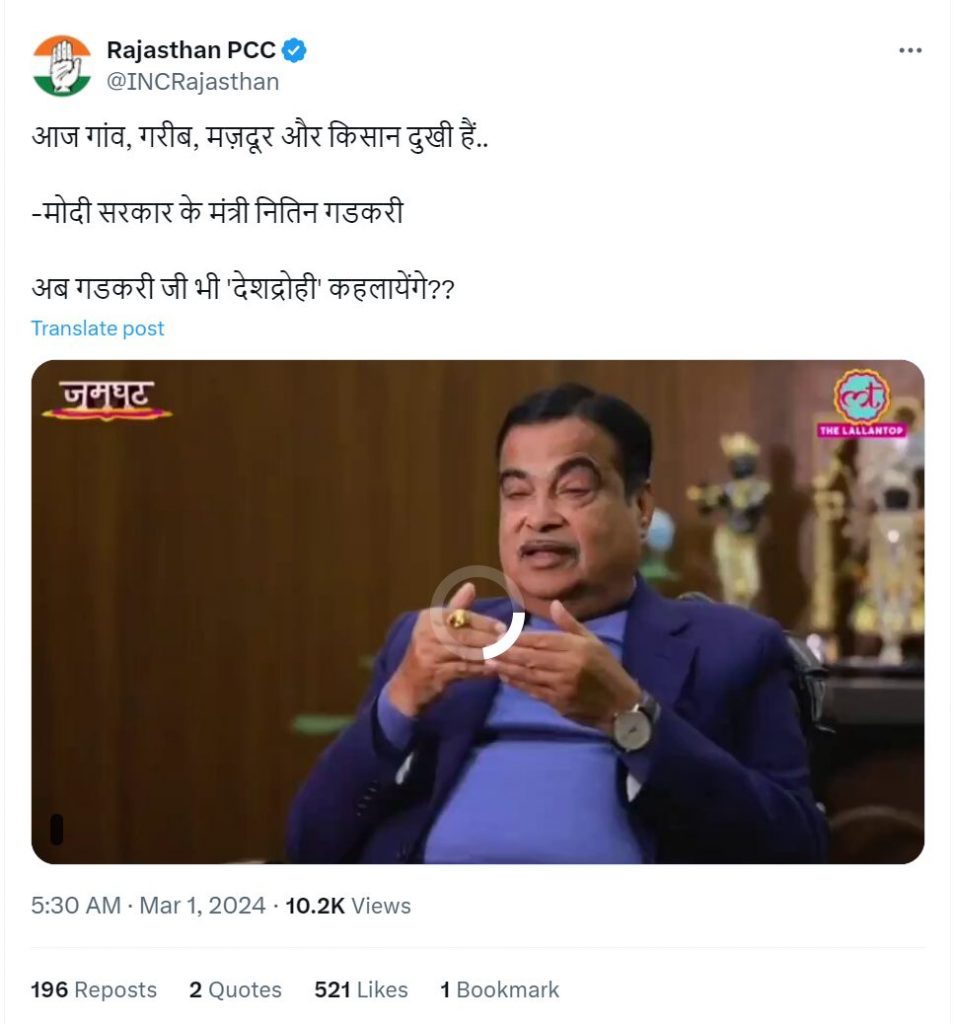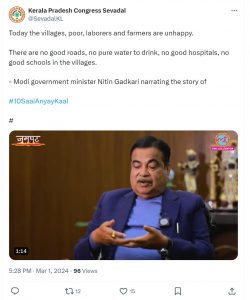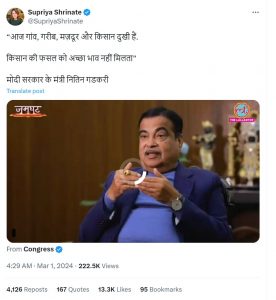A video of an interview with Union minister and senior BJP leader Nitin Gadkari is doing the rounds on social media. Gadkari states, “Today, the villages, the poor, labourers, farmers are distressed. The reason behind this is that in rural agricultural centres and tribal areas, there are no good roads, no clean water to drink, no good hospitals, no good schools, and the farmers are not getting fair prices for their crops.” The video is being shared with the claim that the politician criticized his own party.
Congress shared this video from its official X handle with the same claim. (Archived link)
आज गांव, गरीब, मज़दूर और किसान दुखी हैं.
गावों में अच्छे रोड नहीं, पीने के लिए शुद्ध पानी नहीं, अच्छे अस्पताल नहीं, अच्छे स्कूल नहीं हैं.
– मोदी सरकार के मंत्री नितिन गडकरी pic.twitter.com/jt8AMfWOxU
— Congress (@INCIndia) March 1, 2024
National president of the Indian Youth Congress Srinivas BV shared the video and wrote, “I think action will be taken against Nitin Gadkari now; he could also be called a traitor. By standing in support of farmers, he is directly plotting to bring down Modi’s ‘graph.'” (Archived link)
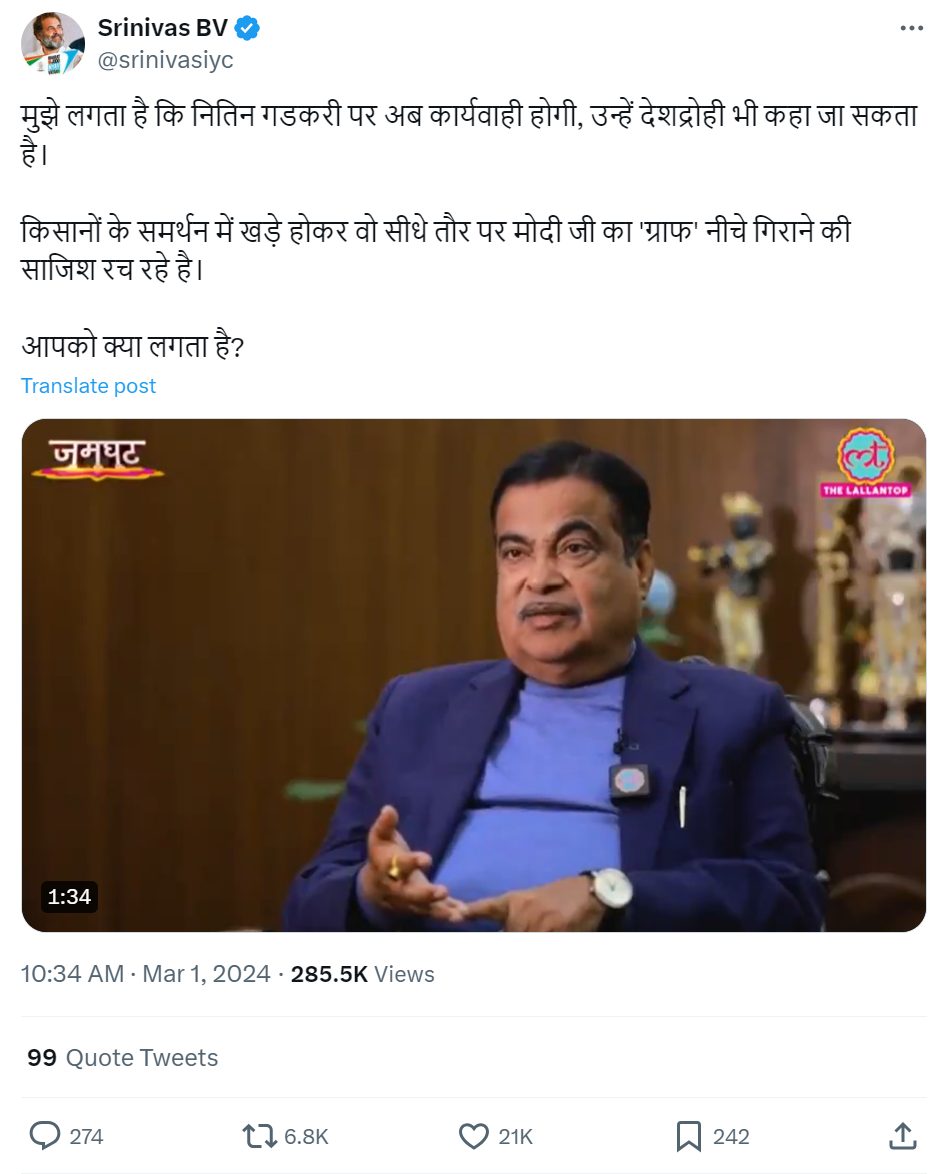
Congress spokesperson Supriya Shrinate, along with the handles of the Kerala Pradesh Congress Sevadal, and Rajasthan Pradesh Congress Committee also shared the clip.
A user named Maheen Khan posted the video writing that Nitin Gadkari’s statements revealed the story of the misery brought by the Modi government in which farmers, labourers, and the poor were not happy. (Archived link)
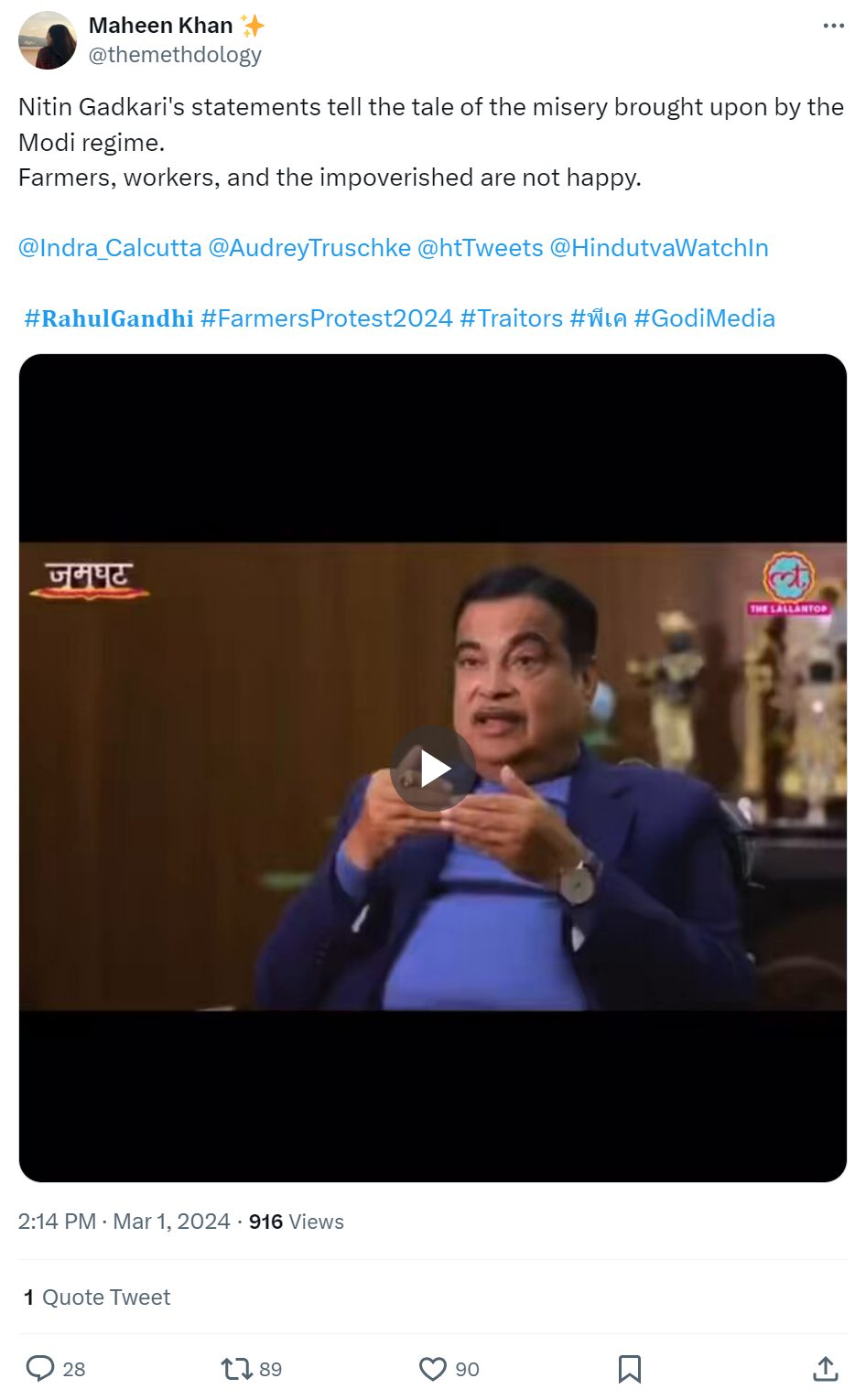
Fact Check
We noticed that the viral video had a LallanTop logo visible. A search on the YouTube channel of The LallanTop, a Hindi media outlet from the India Today stable, led us to the full version of this interview uploaded on February 29.
After watching the entire interview with Nitin Gadkari, Alt News found that the viral video was being shared out of context with misleading claims. To understand the complete context of the viral statement, it is essential to watch this video between the 17:51 to 19:24 mark, where Gadkari says,
“My understanding is that our agricultural growth contributes only 12% to the country’s development, whereas the manufacturing sector contributes 22 to 24%, and the service sector contributes 52 to 54% to the GDP. 65% of our population depends on agriculture. During the times of Mahatma Gandhi, 90% of the population lived in villages. Why did this 30% migration happen? The reason is that today, the villages, the poor, the labourers, the farmers are distressed. The reason behind this is that in rural agricultural centres and tribal areas, there are no good roads, no clean water to drink, no good hospitals, no good schools, and the farmers are not getting fair prices for their crops. It’s not that sustainable development has not happened, but it has not happened in the proportion it should have. Since our government came to power, we have worked a lot for this. We have released 550 Aspirant blocks (referring to the Aspirational block programme), and the Prime Minister has released 120 Aspirant districts where special work needs to be done. So, I believe the solution is this. Our country imports fossil fuels worth Rs. 16 Lakh crore. If our country’s farmers produce ethanol or green hydrogen even worth Rs. 10 Lakh crore or 5 Lakh crore, they will be happy, prosperous, and the villages will generate employment.“
To sum it up, Nitin Gadkari was not criticizing the current government but discussing a long-term problem. He was talking about how historically, India’s rural population has suffered because of lack of development activities. Along with this, he was detailing the efforts of his government for social and economic development.
Independent journalism that speaks truth to power and is free of corporate and political control is possible only when people start contributing towards the same. Please consider donating towards this endeavour to fight fake news and misinformation.
